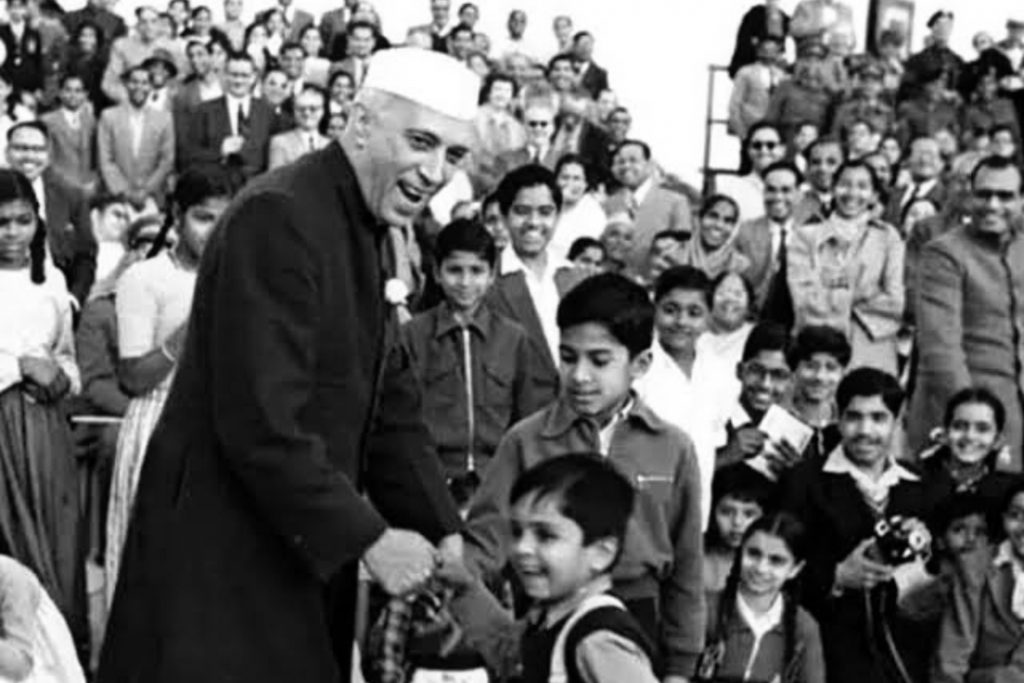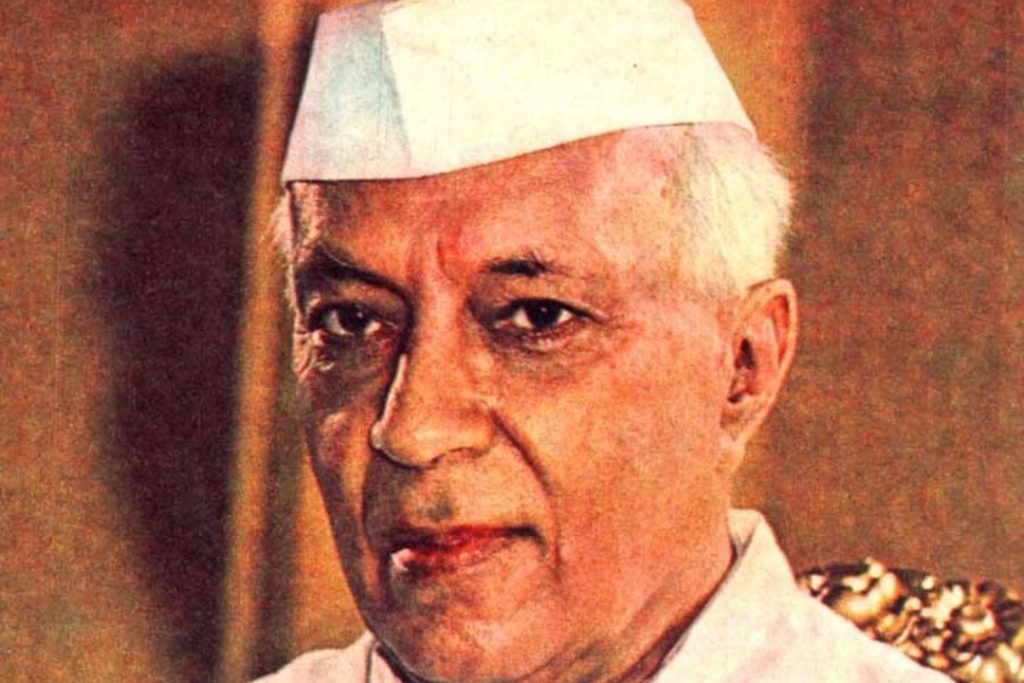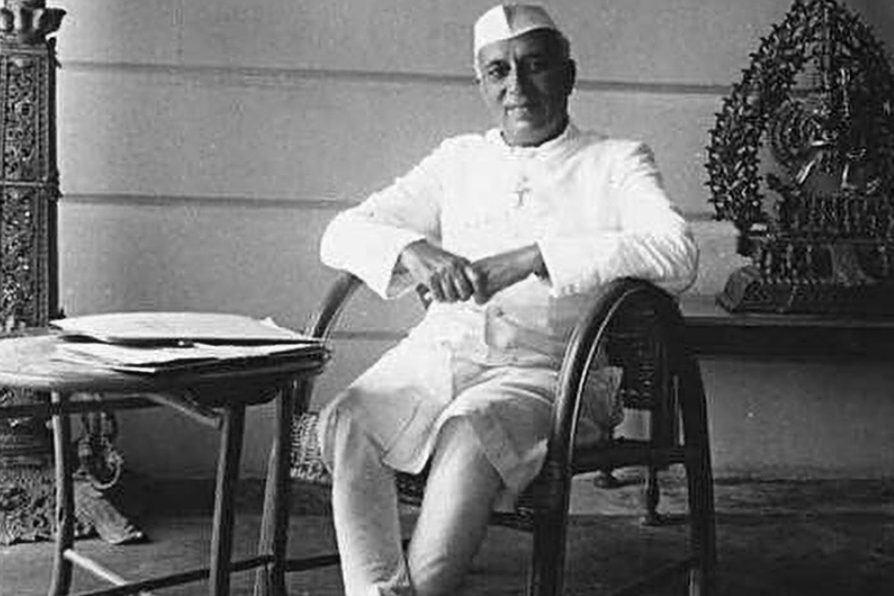Jawaharlal Nehru, often referred to as the architect of modern India, was a towering figure in Indian history. As India’s first Prime Minister and a prominent leader of the Indian independence movement, Jawaharlal Nehru left an indelible mark on the nation’s political, social, and economic fabric. His vision for India was rooted in secularism, socialism, democracy, and scientific progress, which continues to shape the country’s trajectory. This article delves into the life, legacy, and contributions of Jawaharlal Nehru, emphasizing his pivotal role in India’s evolution.
Early Life and Education of Jawaharlal Nehru
Jawaharlal Nehru was born on November 14, 1889, in Allahabad (now Prayagraj), into a wealthy and influential Kashmiri Brahmin family. His father, Motilal Nehru, was a prominent lawyer and a leader of the Indian National Congress, while his mother, Swaruprani Thussu, was a devout homemaker. Jawaharlal Nehru’s privileged upbringing provided him access to excellent education and exposure to progressive ideas.
Jawaharlal Nehru’s early education took place at home under the guidance of private tutors. Later, he was sent to England, where he attended Harrow, one of the most prestigious schools of the time. Subsequently, he studied natural sciences at Trinity College, Cambridge, and pursued law at the Inner Temple in London. The time he spent in England exposed Jawaharlal Nehru to liberal and socialist ideas, which greatly influenced his worldview.
Upon returning to India in 1912, Jawaharlal Nehru joined the Allahabad High Court as a barrister. However, he soon realized that his true calling lay in the political arena, where he could work towards India’s independence and social transformation.
Entry into Politics and Role in the Freedom Movement

Jawaharlal Nehru’s political journey began in earnest when he joined the Indian National Congress in 1919. Influenced by Mahatma Gandhi’s call for non-cooperation against British rule, Jawaharlal Nehru abandoned his legal career and dedicated himself to the freedom struggle. His charismatic leadership and eloquent speeches quickly established him as one of the most influential voices in Indian politics.
Jawaharlal Nehru played a pivotal role in several major movements, including the Non-Cooperation Movement (1920-22), Civil Disobedience Movement (1930-34), and Quit India Movement (1942). His commitment to the cause of independence was unwavering, and he often faced imprisonment for his involvement in these activities. In total, Jawaharlal Nehru spent over nine years in jail during the freedom struggle.
As President of the Indian National Congress on multiple occasions, Jawaharlal Nehru worked to bridge ideological differences within the party. He was particularly instrumental in promoting socialism and secularism as guiding principles for India’s future. His vision was to create a society free from poverty, discrimination, and colonial exploitation.
Jawaharlal Nehru’s Vision for a Modern India
Jawaharlal Nehru’s vision for India extended far beyond the struggle for independence. He was deeply concerned about the kind of nation India would become after gaining freedom. For Jawaharlal Nehru, the priorities included fostering scientific temper, building a self-reliant economy, and ensuring social justice.
Emphasis on Secularism and Democracy
One of Jawaharlal Nehru’s enduring legacies is his unwavering commitment to secularism. He believed that India, with its diverse population, could only thrive as a secular state where all religions were treated equally. Under his leadership, India adopted a Constitution that guaranteed fundamental rights to all citizens, irrespective of caste, creed, or religion.
Democracy was another cornerstone of Jawaharlal Nehru’s vision. He firmly believed in the power of democratic institutions to resolve conflicts and ensure accountability. As the first Prime Minister, Jawaharlal Nehru laid the foundation for a robust parliamentary system, free press, and independent judiciary.
Economic Policies of Jawaharlal Nehru
Jawaharlal Nehru’s economic policies were shaped by his socialist ideals. He advocated for a mixed economy, combining elements of socialism and capitalism, to promote balanced development. His government emphasized state control over key industries such as steel, coal, and energy, while allowing private enterprise to thrive in other sectors.
Under Jawaharlal Nehru’s leadership, India launched its first Five-Year Plan in 1951, focusing on agriculture, irrigation, and community development. Subsequent plans prioritized industrialization, leading to the establishment of major public sector undertakings and infrastructure projects. Jawaharlal Nehru was instrumental in founding institutions like the Indian Institutes of Technology (IITs), which continue to produce world-class engineers and scientists.
Promotion of Scientific Temper
A firm believer in the power of science and technology, Jawaharlal Nehru sought to transform India into a modern, knowledge-driven society. He championed the cause of scientific research and encouraged young Indians to pursue careers in science. The establishment of organizations like the Indian Space Research Organisation (ISRO) and Atomic Energy Commission during his tenure laid the groundwork for India’s advancements in space and nuclear technology.
Jawaharlal Nehru as a Statesman and International Leader

Jawaharlal Nehru’s influence extended beyond India’s borders. As an international statesman, he was a key proponent of the Non-Aligned Movement (NAM), which sought to maintain neutrality during the Cold War. Jawaharlal Nehru believed that newly independent nations should chart their own course rather than align with either the United States or the Soviet Union.
Under Jawaharlal Nehru’s leadership, India became a vocal advocate for global peace and disarmament. He played an active role in mediating international conflicts and promoting cooperation among developing nations.
Challenges Faced by Jawaharlal Nehru
While Jawaharlal Nehru’s achievements were monumental, his tenure was not without challenges. The partition of India in 1947 was a traumatic event that resulted in widespread violence and displacement. As Prime Minister, Jawaharlal Nehru worked tirelessly to resettle refugees and restore communal harmony.
Another significant challenge was the integration of princely states into the Indian Union. Jawaharlal Nehru, along with Sardar Vallabhbhai Patel and V.P. Menon, successfully negotiated the accession of most states, though some required military intervention.
Jawaharlal Nehru also faced criticism for his handling of the Kashmir issue and the 1962 Sino-Indian War. The conflict with China, in particular, was a severe blow to his vision of peaceful coexistence and left him deeply disillusioned.
Jawaharlal Nehru’s Legacy
Jawaharlal Nehru passed away on May 27, 1964, leaving behind a legacy that continues to shape India’s identity. His contributions as a nation-builder are celebrated every year on his birth anniversary, observed as Children’s Day in India.
Jawaharlal Nehru’s vision for a secular, democratic, and progressive India remains a guiding light for the country. His emphasis on education, industrialization, and scientific progress laid the foundation for India’s emergence as a global power.
Conclusion
Jawaharlal Nehru’s life was a testament to his dedication to the ideals of freedom, equality, and modernity. As a leader, he not only played a pivotal role in securing India’s independence but also set the stage for its development as a vibrant democracy. Jawaharlal Nehru’s contributions to nation-building and his vision for a just and inclusive society make him a figure of enduring relevance.
Through his policies, writings, and speeches, Jawaharlal Nehru continues to inspire generations of Indians to dream of a better future and work towards realizing it. His legacy, marked by a profound commitment to humanity and progress, remains etched in the annals of history.


[…] Nehruhttps://learnspira.com/jawaharlal-nehru/: “Rajaji combined brilliance with simplicity, a rare quality that made him a great […]
[…] Jawaharlal Nehru (First Prime Minister of India): […]